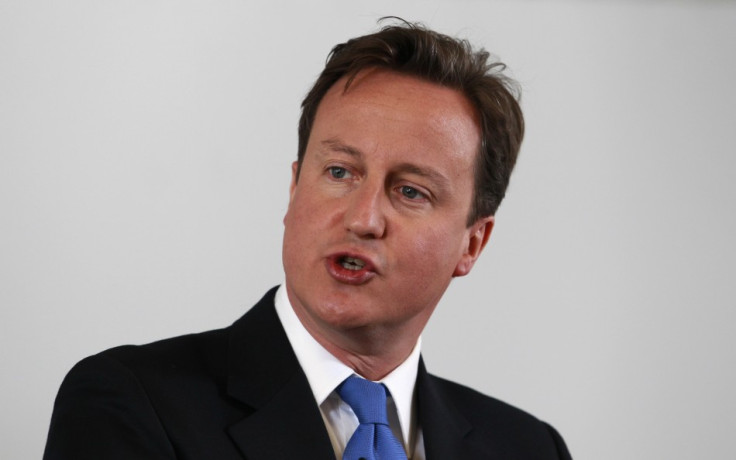Injunctions labelled "unsustainable" and "untenable" as Sunday Herald names football player

David Cameron told ITV1's Daybreak the law should be reviewed to "catch up with how people consume media today" before adding that "It is rather unsustainable, this situation, where newspapers can't print something that clearly everybody else is talking about."
His comments came after the Prime Minister said last week he felt "a little uneasy" about the way privacy laws were being developed in the courts without Parliament having its say. He insisted MPs rather than judges should decide the balance between the freedom of the press and the right to privacy.
Last week, after the footballer's legal team filed a law suit against the Twitter, Twitter followers responded to the legal bid by posting more than 30,000 messages containing the sportsman's name. The player protected by the injunction was already involved in proceedings against ex-Big Brother contestant Imogen Thomas and the Sun newspaper.
During the week-end, Scotland's Sunday Herald added a new twist to the already controversial topic after it became the UK's first mainstream paper to name a footballer accused on Twitter of taking out a privacy injunction by publishing a thinly concealed front-page photograph of the player, printing his face with his eyes blacked out and the word "censored" over the top.
Today, India's leading newspaper the Times Of India printed a picture of the footballer and used his name three times in a report about the injunction, while on the Daily Mail website a survey reveals that more than 70 per cent of the participants knew the name of the footballer, despite the injunction.
Coming back on to the affair, Mr Cameron told Daybreak: "There's a difficulty here because the law is the law and the judges must interpret what the law is.
"What I've said in the past is the danger is that judgements are effectively writing a new law which is what Parliament is meant to do.
"So I think the government, Parliament, has got to take some time out, have a proper look at this, have a think about what we can do, but I'm not sure there is going to be a simple answer."
His comments came after culture secretary Jeremy Hunt, speaking at Google's Big Tent event in London, also said that digital media was creating an "unsustainable situation where newspapers are not able to print things that are freely available on internet".
"We have to remember that internet has been huge force for freedom before going in with big ambitions to clamp down on this part of the net," he continued.
As Hunt ruled out the introduction of a new privacy law, the Prime Minister said one solution might be to strengthen the Press Complaints Commission so that people had more confidence in the body. Labour leader Ed Miliband told the BBC the law was "not working" but did not call for a new privacy law.
In Scotland, First Minister Alex Salmond said injunctions were becoming "impractical" and pointed out the inadequacy of English courts after he told BBC Radio 4's Today programme: "In the modern age, with the internet, is it tenable to pursue these sorts of injunctions? I'd have thought there was an increasing view that it was untenable to do so.
"There's a whole question of what's of interest to the public and what's in the public interest, which is often two different things. The law essentially is a practical thing. It looks to me like the English law, English injunctions, look increasingly impractical in the modern world."
The British prime minister's official spokesman later confirmed to journalists that before taking any potential action to deal with the issue, the government would first introduce a wide debate on injunctions.
An urgent parliamentary question to Culture Secretary Jeremy Hunt on the government's position on the "granting and enforcement" of privacy orders will be asked in the Commons at 15.30 today.
© Copyright IBTimes 2024. All rights reserved.





